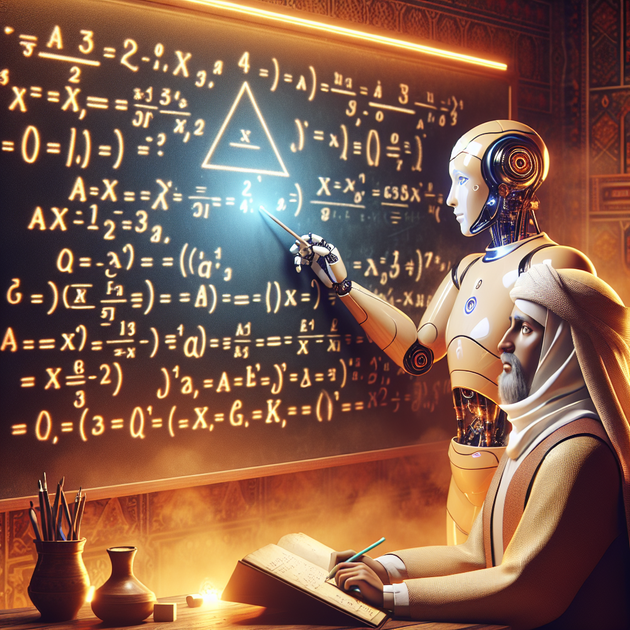What if an AI could do in hours what used to take a top-notch PhD student several days? According to one mathematician on Reddit, that’s exactly what’s happening with the latest version of OpenAI’s language model. The claim is that **GPT-5** can now solve *minor open math problems*—the kind of challenges that are still unsolved or tricky enough to stump experts for a day or two.
Let’s unpack what this means and why it could be such a big deal for both the world of mathematics and AI.
What Are Minor Open Math Problems?
First things first—what counts as a “minor open problem” in mathematics? These aren’t the headline-grabbing mysteries like the Riemann Hypothesis or Fermat’s Last Theorem (before it was solved). Instead, they’re puzzles that come up all the time in research papers and advanced university courses—problems that haven’t been fully cracked yet but aren’t completely out of reach either.
Here’s what makes them special:
- They require creative thinking and deep understanding
- They’re not easily found with a Google search or in textbooks
- Solving them often leads to small but meaningful progress in a mathematical field
- PhD students and researchers might spend days or weeks mulling them over
If an AI like **GPT-5** can chip away at these puzzles, it could free up human researchers to focus on bigger questions—and maybe even accelerate discoveries.
How Is GPT-5 Solving These Problems?
The big question is: what changed between previous versions and **GPT-5**? While we don’t have access to OpenAI’s exact training set or inner workings, there are some clues from user reports and demos:
- Bigger brains: Each new model has more data and parameters under its belt.
- Better reasoning “chains”: Newer models show improved step-by-step logic.
- Access to specialized tools: Some versions can call on external solvers or code interpreters.
- Smoother collaboration: They’re better at following complex instructions from users.
Anecdotally, researchers have posted examples where they feed **GPT-5** real unsolved math questions (not just homework), and the model proposes detailed approaches—sometimes even finding solutions missed by experts.
The Math Community Reacts
Naturally, this news has sparked plenty of debate among mathematicians and tech enthusiasts alike. Some are excited about the idea of having a tireless virtual colleague who never gets bored or frustrated. Others worry about accuracy; after all, AIs sometimes make convincing-sounding errors.
On Reddit and other forums, you’ll find stories like one researcher who asked **GPT-5** for help on a tricky combinatorics problem. After giving some context and constraints, the model returned not only relevant references but also outlined a possible proof strategy. The researcher admitted that while not every detail was perfect, it was enough to get them unstuck—a boost they might have otherwise waited days for from colleagues.
This isn’t just helpful for professional academics either. Advanced undergraduates and hobbyists are discovering new ways to learn by working side-by-side with AI models like **GPT-5**.
What Could This Mean For Future Research?
The potential here goes beyond just getting answers faster. Here are some ways this shift could reshape mathematical research:
- Speeding up discovery: Less time spent on routine puzzles means more energy for big ideas.
- Democratizing research: Anyone with internet access could get help on tough questions—not just those at elite universities.
- Error-checking: AIs can quickly spot inconsistencies or suggest alternative approaches.
- Collaboration: Human + machine teams might tackle previously “impossible” problems together.
Of course, there are challenges too—like making sure results are correct and figuring out how best to credit joint work between humans and machines.
Anecdote: When an AI Becomes Your Math Buddy
One grad student shared their excitement online after struggling with a graph theory question all weekend. Out of curiosity (and maybe frustration), they pasted the problem into **GPT-5**. The response wasn’t just accurate—it included an explanation accessible enough that they finally “got” what their professor had been hinting at all along. It didn’t replace their own effort but acted more like patient guidance than anything else.
The Next Chapter in Mathematics?
Whether you’re thrilled or skeptical about **GPT-5’s** new skillset, there’s no denying things are changing fast in mathematics (and across other sciences). If minor open problems can be solved by an AI overnight instead of over coffee-fueled weekends at a chalkboard—what will human mathematicians do next?
Would you trust an answer from an AI over your own intuition? Or is this just another tool to make problem-solving smarter? Let us know your thoughts below!

Leave a Reply